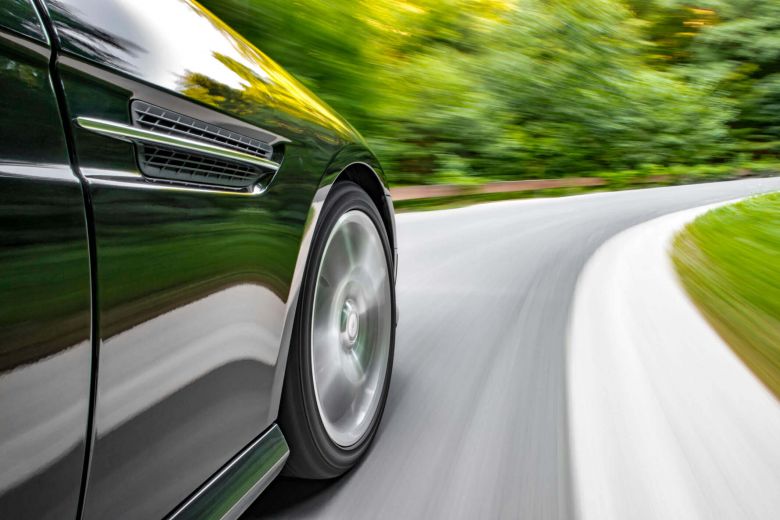It works when the car is in gear and you lift your foot off the accelerator, with the vehicle slowing down without the need to apply the brakes.
There can be a number of benefits to engine braking but it’s important to be aware of some potential drawbacks, too.
What is engine braking?
Engine braking happens when you use the engine to slow down the vehicle.
On a petrol car, when you lift your foot off the accelerator, you close the air intake valve and limit the air that flows to the engine cylinders, which slows the engine.
This is often used when in a lower gear or when travelling on a downhill in order to reduce speed.
When will you feel the effects of engine braking?
The effects of engine braking can be felt immediately after you lift your foot off the accelerator pedal. You can also slow the vehicle by changing down the gears. Both methods will reduce the vehicle's speed without using the brake.
What are the long term effects of engine braking
Engine braking has a range of impacts on both your driving style – and on the vehicle itself. You will notice it immediately, but it isn’t as dramatic and instant as using the brake pedal.
From a positive perspective, it can help reduce wear on the vehicle's braking system since it relies on the engine's compression to slow down the vehicle rather than the friction of brake pads and discs.
If you are looking to decelerate over a longer distance, engine braking can allow the brake discs to cool down, preventing overheating and potential damage.
Although there are pros and cons of engine braking, it isn’t a sudden slowing of the vehicle – so make sure you only use it in the right scenario.
Is engine braking safe?
Although it is generally safe to use engine braking – it is important to do it at the right time.
You should not use engine braking when you need to stop suddenly or in the event of an emergency.
Engine braking is more effective in vehicles with a manual gearbox, although some cars with an automatic transmission will allow you to manually control the gears and initiate engine braking.
Regular maintenance is essential to ensure the engine remains in good condition.
Is engine braking bad?
When used appropriately, engine braking is generally not harmful to your vehicle's engine. Modern engines are designed to handle the forces involved in engine braking.
It is important to use proper technique, and avoiding aggressive downshifting or sudden throttle changes (as this puts additional pressure on the engine, clutch and transmission).
If you do it often, you’ll need to ensure that your vehicle is well maintained with regular oil changes, proper lubrication, and other routine checks.
Also, no matter how much maintenance you carry out, prolonged and excessive use of engine braking will likely lead to increased wear on certain vehicle components.
Will engine braking wear out any of your car's parts?
In short, continual use of engine braking will not excessively wear the braking system or the engine. However, it may increase the wear and tear of the clutch or gearbox if you aggressively engine brake.
Regular car checks and maintenance is the key part of staying safe on the roads.
Engine braking can be a helpful way to slow down the vehicle gradually, but using it in the wrong situation may damage your vehicle.
Book a glow plugs repair
If your diesel engine is having trouble starting, especially in cold weather, it could be faulty glow plugs. Book an RAC Mobile Mechanic today.


Why is engine braking considered a bad habit?
Engine braking itself is not inherently a bad habit, but it can negatively impact your vehicle over time.
However, it's important to note that your vehicle's brake lights will not come on when you employ engine braking, which means other road users may not be aware of your speed reduction.
In sudden or emergency braking situations, relying solely on engine braking may not provide the rapid deceleration needed to avoid a collision.
Engine braking can also be noisy for other road users – which can be considered unpleasant or even disruptive.
This is why it is sometimes viewed as a safety hazard and a bad habit.
When should you use engine braking?
If you end up using engine braking – make sure it is only in suitable scenarios.
Engine braking in snow and ice, or when you are on a downhill will mean a gentler deceleration – and give you more control over the vehicle.
Although it may accelerate wear and tear of the clutch or transmission if used incorrectly, using engine braking may reduce wear on the brake discs and pads.
This is especially true when on long motorway drives. This is because it can be used strategically to manage speed without constant use of the brake pedal.
Keep your engine running smoothly
The RAC recommends regular oil changes help keep your engine running smoothly and extend its life. Book an RAC Mobile Mechanic today.


Should you use engine braking in an electric vehicle?
In petrol and diesel vehicles, engine braking has both positives and negatives – but in electric vehicles (EVs) it is encouraged.
EVs use regenerative braking, which helps slow down the vehicle and recovering energy in the process.
This is where a small electric motor acts as a generator during deceleration.
When the driver lifts off the accelerator, the electric motor converts kinetic energy back into electrical energy. This energy is then transferred back to the battery for later use.
If you have any questions about engine braking, then please leave them in the comments below.

Cheaper than AA or we’ll beat by 20%^
• Roadside cover from £5.49 a month*
• We get to most breakdowns in 60 mins or less
• Our patrols fix 4/5 breakdowns on the spot











